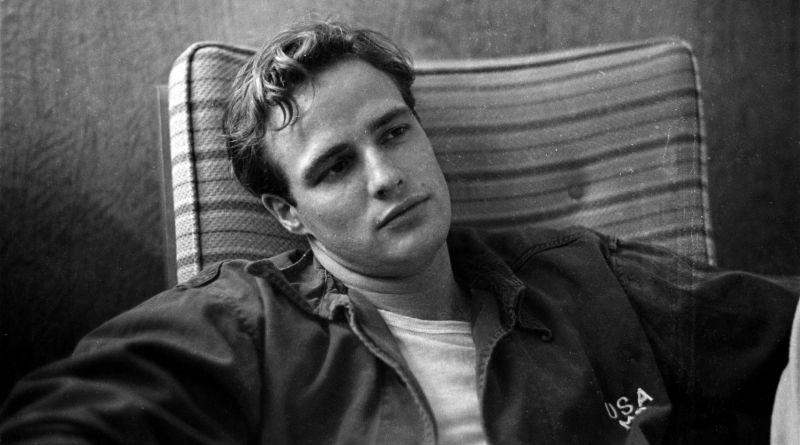Marlon Brando remains one of the most influential and revolutionary actors in the history of cinema. Widely regarded as one of the greatest performers of all time, Marlon Brando changed the landscape of acting and filmmaking in the 20th century. With his raw, method-driven approach to acting and his ability to portray complex, emotionally charged characters, Brando set the standard for modern film performances and left an indelible mark on Hollywood.
Table of Contents
Brando’s legacy extends beyond his remarkable career as an actor; he was also an activist who used his fame to address social and political issues. Known for both his triumphs and controversies, Marlon Brando remains a towering figure in the entertainment industry. This article delves into Brando’s life, career, and lasting impact on both film and society.
Early Life and Education of Marlon Brando
Marlon Brando was born on April 3, 1924, in Omaha, Nebraska, to Dorothy (a theater administrator) and Marlon Brando Sr. (a salesman). Brando’s childhood was marked by instability; his parents’ tumultuous marriage and his father’s alcoholism affected him deeply. Despite the challenges at home, Brando developed an early interest in acting, a passion that would later define his career.
Brando attended various schools before enrolling at the prestigious Dramatic Workshop in New York City, which was affiliated with the renowned Actor’s Studio. Under the guidance of acting coach Stella Adler, Brando honed his craft and embraced the “Method” acting technique. This form of acting emphasizes emotional truth and immersion into a character, which would become Brando’s hallmark style. His training at the Actor’s Studio helped him develop his unique approach to acting and shaped the way future generations of actors would perform.
Breakthrough Role: Marlon Brando in “A Streetcar Named Desire”
Marlon Brando’s big break came in 1947 when he was cast as Stanley Kowalski in Tennessee Williams’ play A Streetcar Named Desire. The role was pivotal in Brando’s career, as it showcased his ability to bring intensity and complexity to a character. His performance on Broadway was electrifying and quickly gained the attention of critics and audiences alike.
Brando’s portrayal of the brutish yet vulnerable Stanley became iconic and set a new standard for acting in theater. His raw, animalistic energy was groundbreaking at the time, and his innovative use of body language and emotion influenced countless actors who followed. In 1951, Brando reprised his role in the film adaptation of A Streetcar Named Desire, further cementing his reputation as one of the finest actors of his generation.
Major Film Roles: Marlon Brando Transforms Hollywood
Brando’s film career took off in the 1950s, as he became one of the biggest movie stars in the world. His ability to transform into his characters and his deep commitment to realism on screen set him apart from other actors of his time. Some of his most famous roles during this period include:
On the Waterfront (1954)
In On the Waterfront, Brando played Terry Malloy, a former boxer who struggles with his conscience while involved in corrupt union activities. His portrayal of the conflicted and disillusioned Malloy earned him an Academy Award for Best Actor. The film, directed by Elia Kazan, is widely considered one of the greatest American films of all time, and Brando’s performance remains one of his most celebrated.
The line “I coulda been a contender” became one of the most memorable quotes in cinematic history and is often quoted to this day. The film’s raw emotional power and Brando’s outstanding performance resonated with audiences, solidifying his status as one of Hollywood’s leading actors.
The Godfather (1972)
Perhaps Brando’s most iconic and defining role came when he was cast as Don Vito Corleone in Francis Ford Coppola’s The Godfather (1972). Playing the patriarch of the Corleone crime family, Brando brought depth and complexity to a character that could have easily been a one-dimensional villain. His nuanced performance as the aging, morally conflicted crime boss earned him a second Academy Award for Best Actor.
Brando’s portrayal of Don Vito Corleone is often regarded as one of the greatest in cinematic history, and his influence on the crime genre is immeasurable. His distinctive mannerisms, including the famous “pursed lips” and his gravelly voice, became instantly recognizable and have since become synonymous with the character. The success of The Godfather cemented Brando’s legacy in Hollywood and ensured his place among the greatest actors of all time.
Apocalypse Now (1979)
Brando’s career continued to evolve in the 1970s, and one of his most complex and controversial performances came in Apocalypse Now (1979). Directed by Francis Ford Coppola, the film is a haunting exploration of the Vietnam War, and Brando played Colonel Kurtz, a rogue officer who has gone insane. The film’s troubled production, coupled with Brando’s eccentric behavior on set, made the making of Apocalypse Now legendary. Nevertheless, Brando’s performance, though widely discussed for its unconventional approach, remains an integral part of the film’s success.
Personal Life and Activism
While Brando’s career was marked by groundbreaking performances, his personal life was often as dramatic and unpredictable as the characters he portrayed. Brando was known for his tumultuous relationships, including his marriages to Anna Kashfi and Movita Castaneda, and his complicated relationship with his children. His personal struggles, which included battles with weight gain, health issues, and controversial behavior, often attracted media attention.
In addition to his acting career, Brando was a passionate activist who used his fame to speak out on various social and political issues. He was a vocal advocate for Native American rights and famously declined the Academy Award for The Godfather in 1973 as a protest against the portrayal of Native Americans in Hollywood films. Instead of attending the ceremony, Brando sent a Native American activist, Sacheen Littlefeather, to decline the award on his behalf, a move that was met with both praise and criticism.
Brando also supported civil rights movements and was a staunch critic of American foreign policy, particularly during the Vietnam War. His willingness to take bold political stances, even at the cost of his career, endeared him to some and alienated him from others, but his activism was an integral part of his public persona.
Later Years and Decline in Acting
As Brando aged, his career became less prolific. In the 1980s and 1990s, he appeared in fewer films, and his health began to decline. His final film role was in The Score (2001), a heist movie in which he appeared alongside Robert De Niro and Edward Norton. Although Brando’s final years in the industry were marked by a lack of major roles, his influence on contemporary acting continued to be felt.
Brando passed away on July 1, 2004, at the age of 80. His death marked the end of an era in Hollywood, but his legacy endures through the countless actors he influenced and the transformative films he helped create.
FAQs About Marlon Brando
1. What is Marlon Brando best known for?
Marlon Brando is best known for his groundbreaking performances in films such as A Streetcar Named Desire, On the Waterfront, The Godfather, and Apocalypse Now. His portrayal of Don Vito Corleone in The Godfather is particularly iconic.
2. Did Marlon Brando win any Oscars?
Yes, Marlon Brando won two Academy Awards for Best Actor: one for his role in On the Waterfront (1954) and another for The Godfather (1972).
3. What was Marlon Brando’s impact on acting?
Brando revolutionized acting with his use of the “Method” acting technique, which emphasized emotional truth and immersion into the character. His performances set new standards for authenticity and depth in acting.
4. Was Marlon Brando involved in activism?
Yes, Marlon Brando was an outspoken activist. He supported civil rights and Native American rights, and he famously declined his Academy Award for The Godfather in 1973 to protest the portrayal of Native Americans in films.
5. What was Marlon Brando’s personal life like?
Brando’s personal life was filled with controversy, including tumultuous relationships and struggles with health and weight. Despite these challenges, he remained a prominent figure in Hollywood throughout his career.






